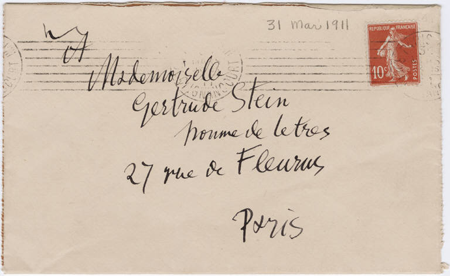Books
- Tommaso Landolfi, Gogol’s Wife & Other Stories, trans. Raymond Rosenthal, John Longrigg & Wayland Young
- Tommaso Landolfi, Words in Commotion, and Other Stories, trans. Kathrine Jason
- Tommaso Landolfi, An Autumn Story, trans. Joachim Neugroschel
- Rachel Levitsky, Under the Sun
- Harry Thurston, A Ship Portrait
- Anne Carson, Glass, Irony & God
- Edmund White, Jack Holmes & His Friend
- Siddhartha Deb, The Beautiful and the Damned: A Portrait of the New India
- Julio Cortázar, A Change of Light, and other stories
- Alison Knowles, Spoken Text
- Alison Knowles, Footnotes: collage journal 30 years
Films
- Meek’s Cutoff, directed by Kelly Reichardt
- Only Angels Have Wings, dir. Howard Hawks
- Götter der Pest (Gods of the Plague), dir. Rainer Werner Fassbinder
- La vie est un roman (Life Is a Bed of Roses), dir. Alain Resnais
- On Approval, dir. Clive Brook
- La piel que habito (The Skin I Live In), dir. Pedro Almodóvar
Exhibits
- “Eugène Atget: Documents pour artistes,” MoMA
- “Exquisite Corpses: Drawing and Disfiguration,” MoMA
- “Print/Out,” MoMA
- “Millennium Magazines,” MoMA
- “Nomads and Networks: The Ancient Art and Culture of Kazakhstan,” Institute for the Study of the Ancient World
- “Rembrandt and Degas: Portrait of the Artist as a Young Man,” Met
- “Spies in the House of Art: Photography, Film, and Video,” Met
- “Natalie Czech: ‘I have nothing to say. Only to show.’ ” Ludlow 38
